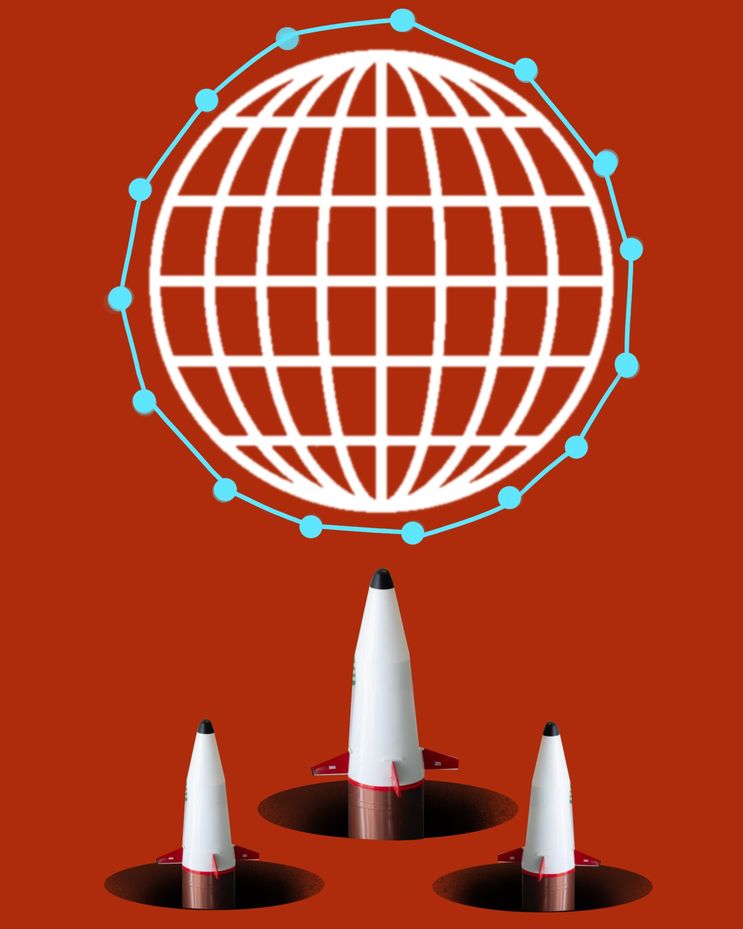
OPINION:
More countries aspire to be nuclear-weapons states, and we should prepare for this eventuality. That’s why the Golden Dome missile defense initiative is timely and needed.
The war in Ukraine is a stark reminder that Ukraine giving up their nuclear weapons, pursuant to the Budapest Memorandum of 1994, in exchange for so-called security assurances, was a grave mistake. Indeed, If Ukraine retained any portion of its 1900 nuclear warheads, would Russia have invaded Ukraine in 2014 and 2022 and risked a nuclear confrontation? Even a revanchist Vladimir Putin would have thought twice about the consequences of a nuclear war with Ukraine.
The 1968 Treaty on the non-proliferations of nuclear weapons (NPT) has been relatively effective in preventing the spread of nuclear weapons and weapons technology as the five nuclear-weapons states – the U.S. Russia, China, France and the United Kingdom – pursued nuclear disarmament. Over the years, however, Pakistan, India and North Korea have conducted nuclear tests and are nuclear-weapons states, with Israel not acknowledging that they have nuclear weapons. North Korea was the only country to pull out of the NPT; the others never joined.
China refuses to enter any nuclear disarmament negotiations with the U.S. and Russia, while exponentially enhancing its nuclear-weapons arsenal. Since the failed Hanoi Summit in 2019, North Korea has raced to build more nuclear weapons and ballistic missile to deliver these weapons, to include a solid fuel Intercontinental Ballistic Missile (ICBM) capable of targeting the whole of the U.S.
And in the Middle East, the U.S. and Israel just bombed Iran’s nuclear facilities in Isfahan, Natanz and Fordow, given that Iran was enriching uranium at 60% purity, weeks away from the 90% purity for nuclear weapons. Moreover, the International Atomic Energy Agency’s (IAEA) May 31 report that stated Iran was in breach of its non-proliferation obligations and was denying monitors access to suspect nuclear sites reportedly contributed to the decision to bomb these sites.
Iran just announced that they were suspending cooperation with the IAEA until the safety of its nuclear facilities could be guaranteed.
Over 70% of South Koreans believe they need their own nuclear weapons, despite U.S. extended deterrent commitments. There’s also a sense in Japan that eventually they also will need their own nuclear weapons, as a deterrent to North Korea and possibly China as developments in the region become more tense. The tension in the South and East China Seas and China’s attempted intimidation of Taiwan are issues that will affect both Japan and South Korea. And indeed, an emboldened North Korea, now aligned with a revanchist Russian Federation, with a mutual defense treaty and North Korean troops in Russia participating in the war of aggression in Ukraine and receiving missile, satellite and nuclear support from Russia, may strike out at South Korea, in a conflict that could escalate quickly, to include the use of tactical nuclear weapons. Other countries in East Asia may feel compelled to also seek nuclear weapons, as a deterrent to any aggressor.
The same applies to the Middle East. Iran has been clear: They will continue to enrich uranium, despite the recent bombing of their nuclear facilities. But as a threshold nuclear weapons state, weeks away from fabricating nuclear weapons and calling for the annihilation of Israel, will there be a repeat of the U.S. and Israeli bombings? Will Iran now race to acquire nuclear weapons, especially now, given the removal of IAEA monitors?
Saudi Arabia, Egypt and Turkey are a few countries very concerned about Iran acquiring nuclear weapons. Indeed, they may also feel a need to have their own nuclear weapons arsenal, for deterrent purposes. Turkey’s President Recep Tayyip Erdogan publicly spoke about the unfairness of Turkey not having nuclear weapons as a deterrent given the precarious geopolitical situation in the region.
Our missile defense capabilities have lagged the advances in nuclear-weapons technology, especially the lethality of today’s nuclear weapons that are eighty times more powerful than the atomic bombs used in Hiroshima and Nagasaki.
There currently are over 13,000 nuclear weapons in the global stockpile of nuclear weapons, down from over 60,000 nuclear weapons during the Cold War. The New START arms control treaty between the U.S. and the Russian Federation, responsible for this reduction in nuclear weapons, expires on February 5, 2026, and Russia has refused to engage substantively on a successor to New START. So, what follows is uncertainty.
What is certain is that China will continue to build more nuclear weapons, with estimates of having over 1000 nuclear warheads by 2030; and North Korea, with current estimates of more than 50 nuclear warheads, determined to build more nuclear weapons; and Iran determined to remain a threshold nuclear-weapons state, weeks away from having nuclear weapons.
If South Korea and Japan and others in East Asia and if Saudi Arabia and Turkey and others in the Middle East decide to go nuclear, the global stockpile of nuclear weapons will increase exponentially. We also know that terrorist organizations, like Al-Qaeda, previously attempted to buy a nuclear weapon or radiological materials for a dirty bomb. And there may be countries willing to sell these weapons and radiological materials, or unable to securely store these weapons and materials that, then, are acquired by a rogue state or terrorist organization.
These are just some of the reasons why a Golden Dome missile defense system is needed. Deploying space-based sensors and interceptors is no longer the Star Wars (Strategic Defense Initiative) that President Reagan pursued in 1983. We now have the technology and a budget of $175 Billion to establish a viable missile defense capability hopefully within three years. We owe the American people security from the threat of a bad actor using nuclear weapons to attack the U.S.
• The author was the former Director of the National Counterproliferation Center and the former Special Envoy for Six Party Negotiations with North Korea and the former Associate Director of National Intelligence. The views are the author’s and not any government agency or department.












